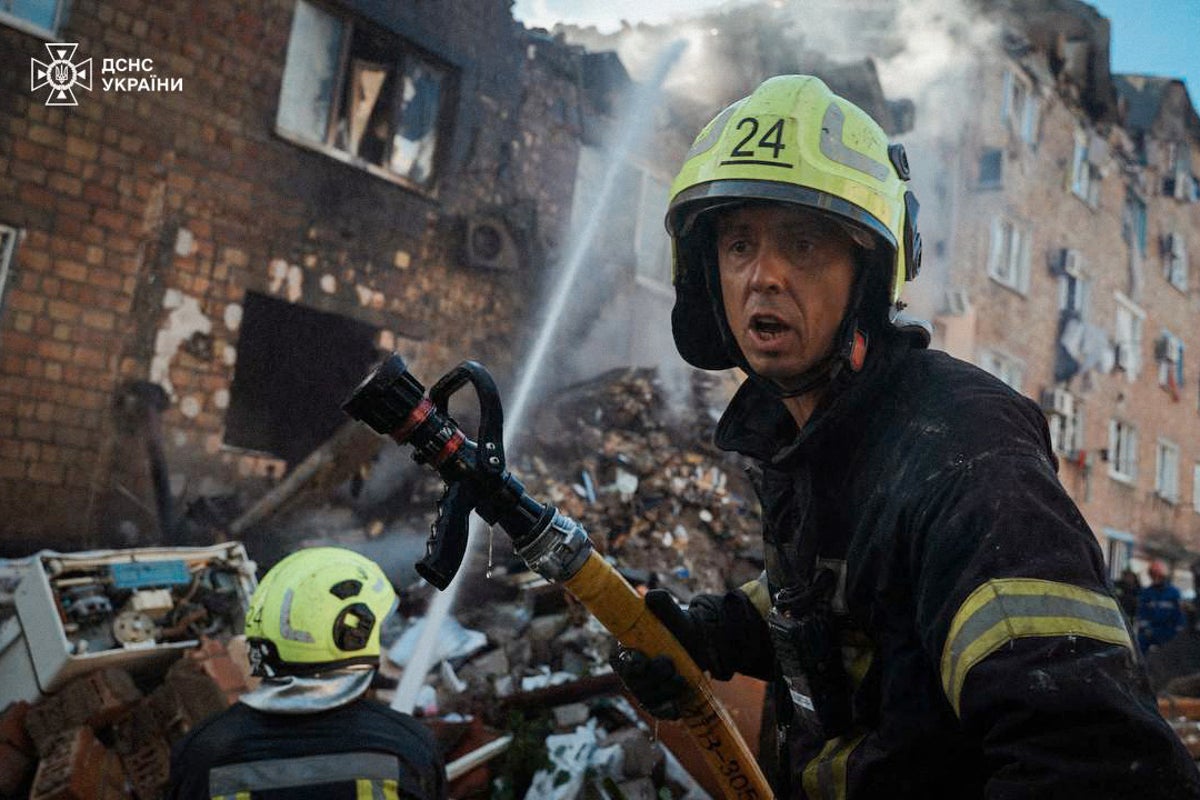Less than two weeks after Donald Trump promised an end to the bloodshed in Ukraine, Russia pounded Kyiv with the second-worst aerial assault of the war so far on Thursday, killing at least 23 people and injuring 48.
Residents of the Ukrainian capital, which lies hundreds of miles from the front line, have been forced to adapt to a constant cycle of devastating missile and drone strikes since the beginning of the war in February 2022. The sound of air raid sirens and the retreat to bomb shelters have become a daily reality.
In the past few months, Russia has ramped up strikes on towns and cities in a move experts say is a deliberate attempt to sow fear among civilians and break their morale.
“Russia is pressuring Ukraine through psychological methods and intimidation. This is a strategy to exhaust our moral and instil psychological terror,” Liliya Sky, a PhD student from Kyiv, told The Independent.
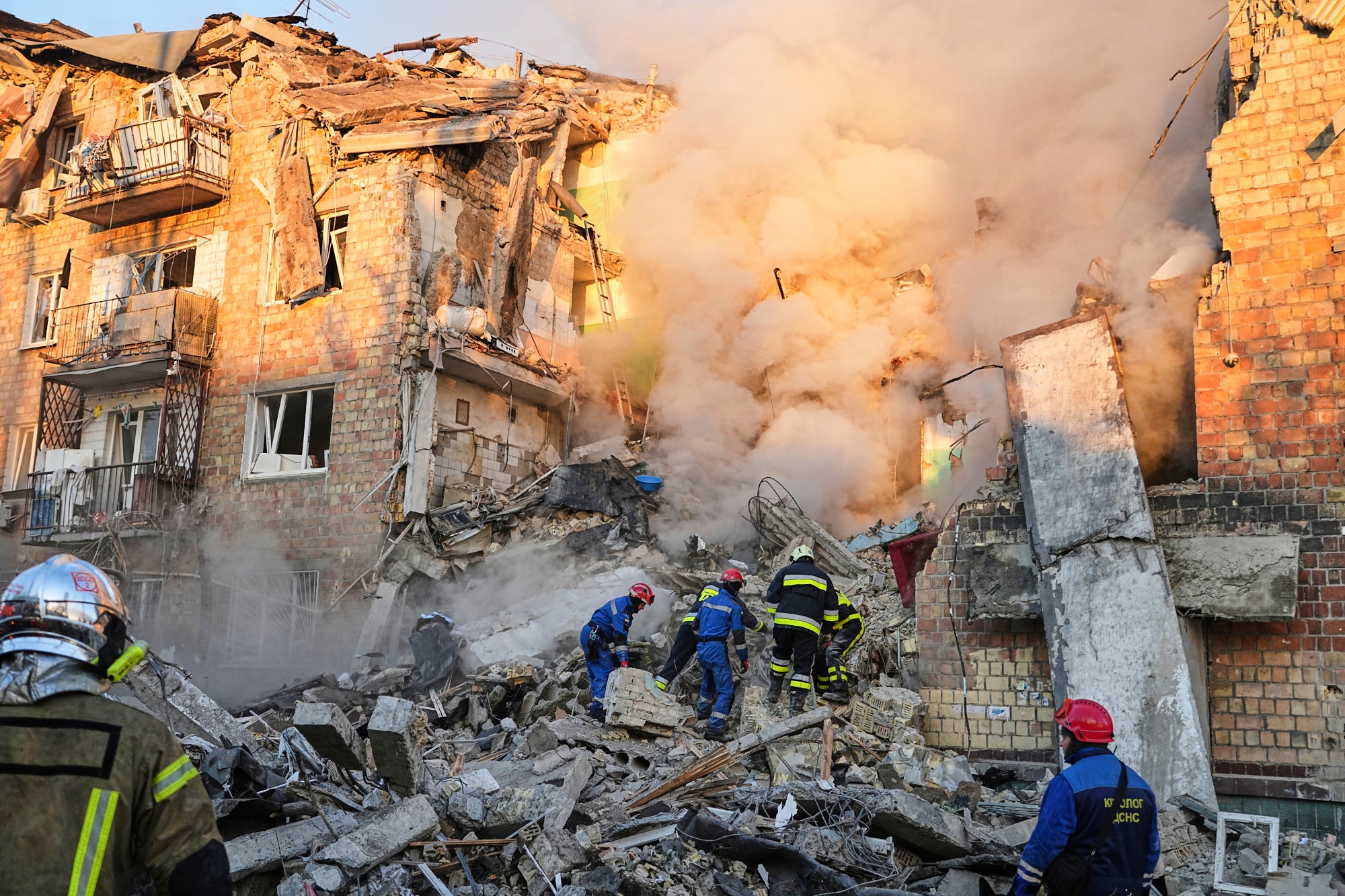
“It is a methodical, constant campaign of moral and physical exhaustion so that people surrender and agree to give up territories for the sake of simply ending the war,” Ms Sky said. “But Ukrainians have a different mentality: I would rather die than submit.”
At least 100 buildings, including a shopping mall, were damaged in the overnight attack. Rescuers dug through rubble on Kyiv’s left bank to recover bodies while firefighters battled blazes in residential buildings.
Keir Giles, a fellow of the Russia and Eurasia programme at Chatham House, told The Independent that Moscow was seeking to “cause the maximum possible misery and suffering among the civilian population”.
“That’s the principle we saw applied in Syria, in Chechnya and in countless others of Moscow’s wars dating back decades and centuries,” he said.
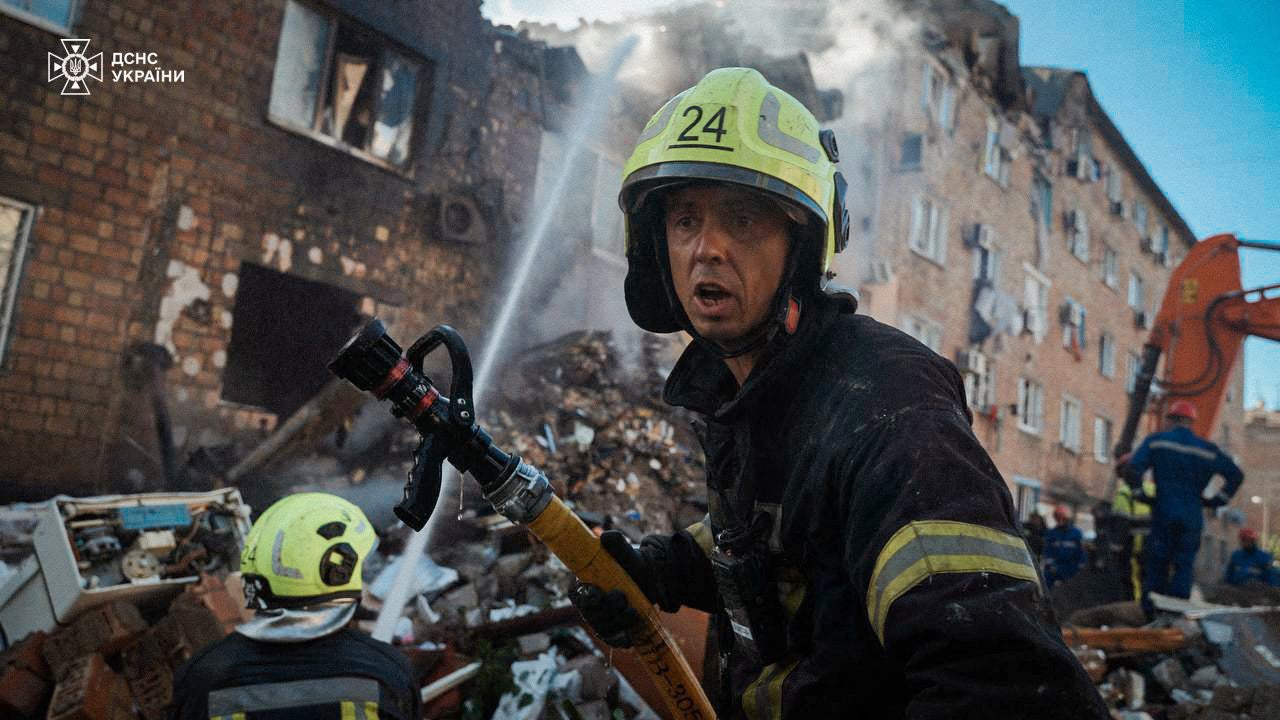
Natia Seskuria, an associate fellow at the Royal United Services Institute (RUSI), said that the “systematic targeting of civilian infrastructure forms a central element of Russia’s strategy, designed to terrorise the Ukrainian population and erode public morale”.
“The underlying calculation is that a war-weary society subjected to sustained attacks might exert pressure on the government to accept almost any settlement that promises an end to hostilities,” she told The Independent. “Thus far, however, this strategy has proven ineffective, as Ukrainians have demonstrated remarkable resilience and determination in the face of ongoing aggression.”
Some 629 missiles and drones hit Ukraine on Thursday, most of which hit the capital. Only one other Russian air attack has surpassed this scale since June: an attack comprised of 741 missiles and drones on 9 July which targeted the city of Lutsk.
“As usual, Russians are not achieving results on the battlefield and are trying to make up for it by terrorising peaceful cities,” Yuriy Sak, an adviser to the minister of strategic industries, told The Independent.
Mr Giles said Ukraine was “the victim of Russia’s attempts to demoralise its victims through inhumanity. “That’s the reason for attacks on maternity hospitals, and nurseries, targeting the most vulnerable in society, as well as for the systematic torture and starvation of Ukrainian military and civilian captives – not for any objective purpose other than deliberate and demonstrative cruelty.”
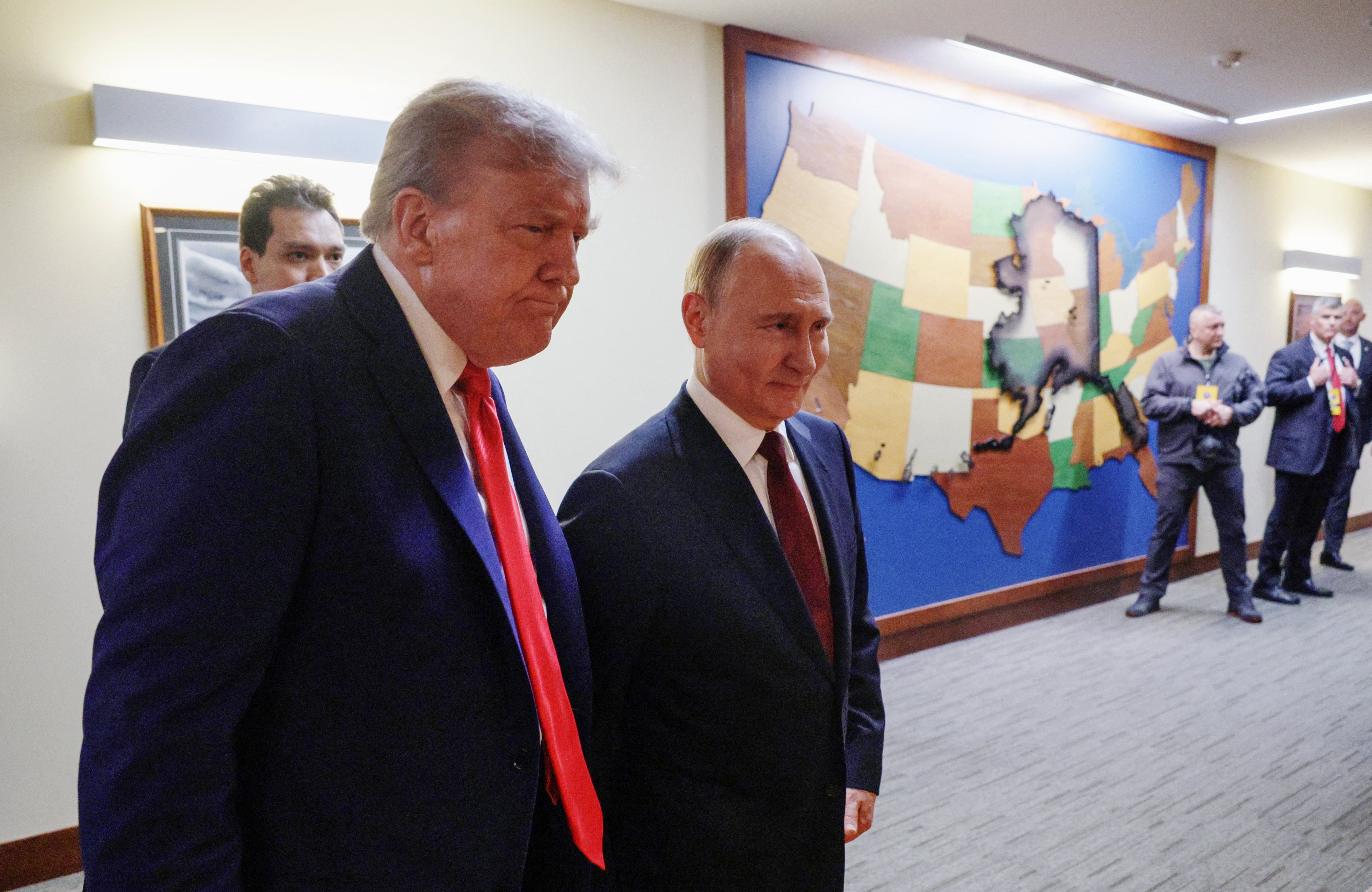
Western leaders continue to accuse Vladimir Putin of avoiding any serious attempt at ending the war. The Kremlin maintains it remains interested in peace talks despite Thursday’s air attack.
“The most recent wave of Russian strikes underscores that Putin has neither the intention of pursuing peace nor of altering his political and military objectives in Ukraine,” RUSI’s Ms Seskuria said.
Earlier this month, a summit held in Alaska between the US and Russian presidents failed to produce a deal. Mr Trump said the meeting was “very productive”, but the latest diplomatic push to end the war has yet to yield any results. Two Ukrainian envoys are due to meet members of the Trump administration on Friday to discuss the next steps.
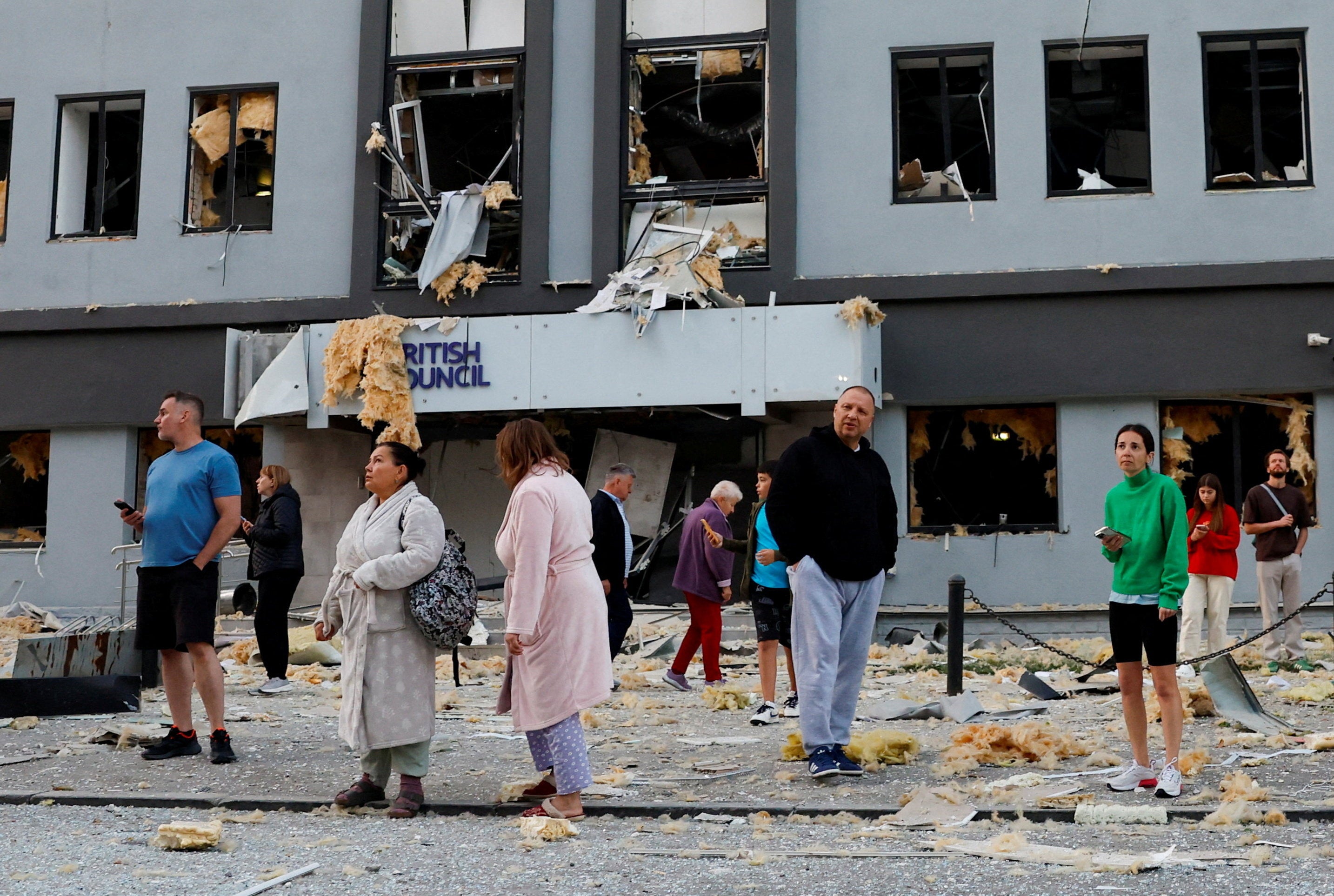
“Russia chooses ballistics instead of the negotiating table,” Ukraine’s President Zelensky said after the attack. “It chooses to continue killing instead of ending the war. We expect a response from everyone in the world who has called for peace but now more often stays silent rather than taking principled positions.”
The attack on Kyiv damaged the European Union’s mission and British Council offices in the city, prompting London and the EU to summon their Russian envoys. But Mr Giles at Chatham House warned that the attack carries broader dangers: “Russia’s other neighbours know that the same treatment awaits them if Ukraine falls and Moscow looks for its next victim. But nobody should think that because they are far from Russia they are immune. Russia has been practising delivering death and destruction at immense ranges, and western Europe, including the UK, is well within reach of the same kinds of inhuman wave attacks that are currently being delivered against Kyiv.”
On Thursday it was revealed that European leaders are considering the creation of a 40km buffer zone between the Ukrainian and Russian front lines as part of a deal to end the war.
Five diplomatic sources told Politico that such a zone could form part of a postwar or ceasefire agreement in Ukraine. The US is not currently involved in the talks, and it is unclear whether the plan would be accepted by Kyiv as it could involve territorial concessions.


